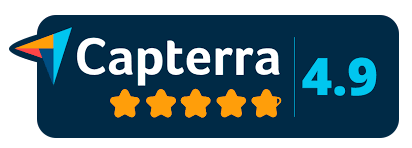CRM SaaS
Introduction
Today we talk Geoff about how to identify valuable leads from your website. Geoff McQuee is the CEO & Co-Founder of Accelo, a cloud-based software management tool with the goal to make a business more profitable and you less stressed.
In addition to this Geoff is a strong voice for the Australian tech community in the United States, both as a Co-founder of the Aussie Founder’s Network and founding mentor for Startmate, Australia’s leading startup accelerator.
We explore a very interesting topic with Geoff – we are looking at how to understand what % of visitors are potential clients with Accelo. Tune in…
See an abstract of the interview on how to identify valuable leads
Pathmonk: How do you think about introducing a new product or product category?
Geoff McQueen: It’s honestly one of the biggest challenges when you are creating what is an effective new category of technology or any product for that matter. How do people discover it if they’re not searching for it? So we do a few different things. The first thing we do is we try and intercept people with what they think they’re looking for.People don’t necessarily think I’m looking for a system to run my business in a much more streamlined fashion so that I can actually like have confidence in where we’re going and heaven forbid, be able to work on the business instead of in it and reality. For most people running these service businesses, they actually work under it. They’re the system, they’re the one holding it together. They’re the person that everyone in the business goes to and says, what do we do about this? What do we do about that? What do we do about the other? Like there is no system. Giving, people aren’t necessarily looking for a solution to that problem that even though it’s acute and it hurts them every day in the same way that people aren’t necessarily looking for or expecting to find a solution to traffic congestion in Los Angeles, black, you just accept it. Unless you’re Elon Musk, you got tunnels. But most people just accept their high. They don’t have the means to follow through on those flights of fancy. For the challenge for someone like us around growth, it’s like what do you do? So we try and intercept people where they are trying to solve a partial problem.They might think their problem is around project management and they might think, what the reason we’ve got this problem, if this project has gone to 150% for this high value client and we’re not even finished it yet, that profit margins sucks. Our team have burned out and I’m worried they’re going to leave. Cause I hate this project so much. This big customer that we spent huge amounts of time and money to land with the hope that they would become a repeat customer and be maybe one of our anchor clients over the next decade. (…)
Pathmonk: You mentioned the website a couple of times there. What role does the website play in winning those clients? Is that very important or is it more an informational hub to like get the actual conversations with leads going?
Geoff McQueen: Yeah, it’s, it plays a bunch of different roles. I would struggle to kind of imagine a business today in any field where their website isn’t their most important piece of, communications and education. As far as channels concerned, obviously there’s a bunch of channels that get you through the website, SEO, SEM, all the good stuff.In terms of the role of the website, I can’t remember where I heard it. I also kind of vouch for its accuracy. It may just be one of those numbers we all kind of hear and internalize, but something like 80% of the buying journey is completed before they raise their hand at all, before they get in touch or before they call or before they fit on a form or try to start a trial, sign up people that are really self-educating, hell of a lot. And I mean, I’ll do it (…). We’ve got some amazing case studies that frankly, your average person who’s just evaluating a solution isn’t probably reading a two or three page PDF. As they’re looking at actually moving their business to run and depend on the system that they read in those case studies, man.Of course, downstream after they are customers, any subscription business actually has to sell. Every single month.Sale doesn’t end with the order.It’s a need to sell, why, and deliver value and keep that customer. We have a very extensive health component under the resources section of our website. Where the traffic that we see on that and the positive impact that has for our users is off the shops.
Pathmonk: What metrics are interesting to you describing the role from the website there. What metrics do you as a business owner then really care about when you look at the website, what are types of metrics that you think are actually valuable and direction giving for you?
Geoff McQueen: Yeah. We tend to be, I guess, focused, primarily on, the top of the funnel.Because that’s where like any funnel, you have the largest number of things going on.For us, it’s identifying as best we can.In a world of, people clearing cookies and all sorts of other stuff, the ability to really know with any certainty that a visitor is a returning visitor and that there may be a paying customer versus someone who’s in a trial or sale process versus somebody who’s completely new is not guaranteed. We try where we can to understand the differences between those two stages of a journey, sorry, three stages of a, of a journey.Within that look to identify the performance of key pages for those key roots of users (…)
Pathmonk: Any anything to share on how you were able to improve the conversion? I know you mentioned those three different groups. Let’s look at the new client or new potential one. Anything that you learned in order to improve the conversions on the website.
Geoff McQueen: One thing that we did recently, is we changed that headline. We previously was doing that classic mistake that a lot of marketers make where they talk about where they want the readout or visitor, what they want them to understand instead of catching them with where they’re actually like, where the current level of understanding is. We had a headline that was talking about how accelerate is the only system for doing the things that it does. We changed that headline and we switched it to really build on to connect to the empathy of somebody who’s running a service business to really needs to hear. He’s looking for a message to just finally a system to help you run your business because they see heaps of tools that help them to do a job or a task that I didn’t see systems to run their business.That pivot in wording from going and talking about it, where the best in this category and trying to define the category with somebody who doesn’t really know or care the category as a first visitor.They’re just like, what is this thing I heard about from a buddy when I went to a business breakfast yesterday and actually connecting with them and going finally here is something for you.Increased out at landing page or our homepage signups by 400%. Cause obviously the vast majority of people aren’t signing up and all that good stuff, but that gives you an idea.
Pathmonk: Where does that come from?
Geoff McQueen: Honestly comes from experimenting. Some things, from my perspective and maybe, and from our marketing leader’s perspective and there’s probably other people listening to this who are in the same category yet, we spend a lot of time on new campaigns, what’s going to be the right keyword? What should we bid it up to? What are the conversion rates on landing pages? And it’s right to spend a lot of time there (…)
Pathmonk: So we’re slowly coming to an end. There’s one thing I’m super curious about, which you mentioned was the being able to understand on whether somebody is a returning visitor, somebody who has been already in a trial or somebody’s just completely new or somebody actually being a client. What’s the things that you tried in order to separate them out? And maybe some folks can take some learnings from this who are facing the same challenge.
Geoff McQueen: Yeah. I mean, within the confines of what you can do with cookies, it’s not too hard to do.So you’ve got a couple of choices.You can roll your own. Like if someone’s logged into the product, you can set a cookie. Depending on the domain pattern that you using, it should be pretty straightforward.You can use third party tools to do it. We use HubSpot from a marketing automation perspective, which means that once someone is a trial user or they’ve expressed interest in filled with form, we’ve got that individual identified. We connect that we actually use XLO itself as a platform for running our own sales process and pipeline.XLO as a product integrates with HubSpot as a product (…)











